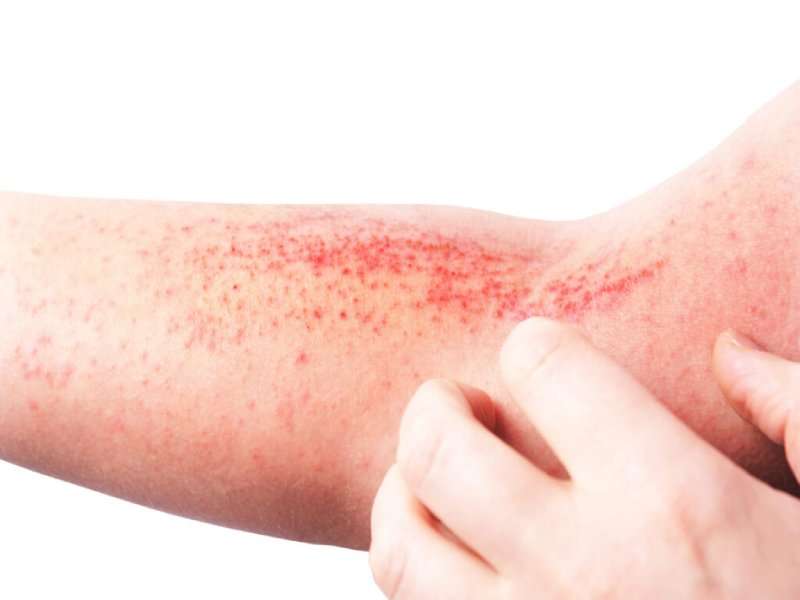
Allergies and immunological conditions can disrupt daily life, causing discomfort and, in some cases, leading to severe health complications. Whether it’s a seasonal allergy, a food allergy, or an autoimmune disorder, these conditions often require specialized care to manage symptoms and prevent long-term effects. Dhanvantari Clinic offers comprehensive treatment for allergies and immunological conditions, guided by the expertise of Dr. Soni A.K., an experienced General Physician & Surgeon, and Dr. Anish Kumar, a Family Physician. We understand that allergies and immune system disorders can range from mild symptoms, like sneezing and itching, to more severe reactions, such as anaphylaxis or autoimmune attacks. Our goal is to help patients achieve better health through personalized treatment plans that address the root cause of their conditions and provide relief from symptoms.
What Are Allergies and Immunological Conditions?
Allergies occur when the immune system overreacts to harmless substances, such as pollen, dust, pet dander, or certain foods. When the immune system perceives these substances as threats, it releases chemicals like histamines, causing inflammation and allergic symptoms. Common allergies include:
- Pollen Allergies (Hay Fever)
- Dust Mite Allergies
- Food Allergies (e.g., nuts, shellfish, dairy)
- Insect Stings (e.g., bee stings)
- Pet Allergies
- Latex Allergies
Immunological conditions, on the other hand, refer to disorders of the immune system, where it either underperforms or becomes overactive, leading to autoimmune diseases or immune deficiencies. Autoimmune diseases occur when the body’s immune system mistakenly attacks its own tissues, resulting in conditions such as:
- Rheumatoid Arthritis
- Systemic Lupus Erythematosus (Lupus)
- Multiple Sclerosis
- Type 1 Diabetes
- Graves’ Disease
- Celiac Disease
Dhanvantari Clinic provides specialized treatment to address both allergic and autoimmune conditions, offering tailored therapies for symptom management, prevention, and long-term control.
Conditions We Treat:

Seasonal Allergies (Hay Fever):
Seasonal allergies, also known as hay fever, are triggered by pollen from trees, grasses, or weeds. Symptoms include sneezing, itchy eyes, and nasal congestion. We offer medications, allergy shots, and lifestyle recommendations to reduce exposure to allergens.

Food Allergies:
Common food allergens include nuts, shellfish, dairy, and eggs. Food allergies can cause a range of symptoms from mild rashes to severe anaphylactic reactions. We help patients identify their food triggers through testing and provide management strategies for safe eating.

Asthma:
Asthma is a chronic condition that affects the airways, causing wheezing, shortness of breath, and coughing. We offer inhalers, medications, and lifestyle modifications to help control asthma and prevent attacks.

Eczema and Skin Allergies:
Eczema is a skin condition that causes redness, itching, and inflammation. Our dermatology experts, in collaboration with Dr. Soni A.K., offer treatments to reduce flare-ups and soothe irritated skin.

Rheumatoid Arthritis:
Rheumatoid arthritis is an autoimmune disorder that causes joint pain, swelling, and stiffness. We offer medications and physical therapy to help manage symptoms and improve joint function.

Lupus:
Lupus is an autoimmune disease that affects multiple organs. Treatment often includes medications to suppress the immune system and reduce inflammation.

Anaphylaxis:
Anaphylaxis is a severe, life-threatening allergic reaction. We provide emergency care, epinephrine injections, and allergy management plans to prevent future occurrences.
Symptoms of Allergies and Immunological Conditions:
Allergic reactions can manifest in a variety of ways, depending on the allergen involved. Common symptoms include:
- Sneezing and runny nose
- Itchy or watery eyes
- Skin rashes or hives
- Swelling of the lips, tongue, or throat
- Shortness of breath or wheezing (in case of asthma)
- Digestive issues like nausea, vomiting, or diarrhea (in food allergies)
- Anaphylaxis (severe, life-threatening allergic reaction)
Immunological conditions present with symptoms specific to the affected organ or system, such as:
- Joint pain and swelling (in autoimmune arthritis)
- Skin rashes (in conditions like lupus)
- Fatigue, weakness, and fever (in many autoimmune diseases)
- Digestive issues (in celiac disease)
- Muscle weakness or paralysis (in multiple sclerosis)
If you experience any of these symptoms, it is important to seek medical care immediately. Early diagnosis and intervention can help control symptoms and prevent complications.
How We Manage Allergies and Immunological Conditions?
At Dhanvantari Clinic, we offer a range of treatments to manage allergies and immunological conditions effectively. Our approach focuses on providing relief from symptoms, identifying triggers, and helping patients lead a healthier, more comfortable life.
Comprehensive Diagnosis:
Accurate diagnosis is crucial for managing allergies and immune system disorders. Dr. Soni A.K. and Dr. Anish Kumar begin by evaluating your medical history, conducting physical examinations, and ordering relevant diagnostic tests. These may include blood tests (for allergy tests or autoimmune markers), skin prick tests, and imaging studies to assess organ function. This thorough evaluation helps identify the specific allergens or immune-related issues causing your symptoms.
Allergy Testing and Desensitization:
For patients with allergies, we offer skin testing or blood tests to identify specific allergens, whether they are seasonal, food-related, or related to environmental factors. Based on the results, we recommend desensitization techniques such as Allergen Immunotherapy (allergy shots) or oral immunotherapy to gradually reduce the body’s sensitivity to allergens over time. This treatment can help prevent future allergic reactions.
Medications for Symptom Relief:
Medication plays a vital role in controlling allergy symptoms and managing autoimmune flare-ups. Common medications include:
- Antihistamines to block histamine release and reduce symptoms like itching and swelling.
- Corticosteroids to reduce inflammation and treat severe allergic reactions or autoimmune flare-ups.
- Decongestants to relieve nasal congestion.
- Biologic Therapies (for autoimmune conditions) to target specific immune system pathways involved in the disease process.
- Epinephrine (for anaphylaxis) to manage severe allergic reactions.
Dr. Soni A.K. and Dr. Anish Kumar carefully assess your condition and prescribe medications that are both effective and safe, based on your specific needs and medical history.
Lifestyle and Environmental Modifications:
For patients with allergies, minimizing exposure to allergens is key to preventing flare-ups. Our doctors provide advice on avoiding triggers, such as using air purifiers, keeping windows closed during pollen season, and avoiding certain foods or environmental allergens. For those with asthma or allergic rhinitis, lifestyle adjustments like regular cleaning, using hypoallergenic bedding, and wearing masks can help reduce symptoms.
Dietary Recommendations for Food Allergies:
Food allergies require strict avoidance of the allergenic food, which may require careful label reading, cooking modifications, and food substitutions. Dr. Anish Kumar provides personalized dietary guidance to help you manage your food allergies while ensuring a balanced, nutritious diet.
Autoimmune Disease Management:
Autoimmune diseases require long-term management to control flare-ups and maintain immune balance. Dr. Soni A.K. and Dr. Anish Kumar work closely with you to develop an individualized treatment plan that may include immunosuppressive medications, biologics, and physical therapy. Lifestyle modifications, stress management, and dietary changes also play an important role in managing autoimmune diseases.
Supportive Therapies and Counseling:
Living with chronic allergies or an autoimmune condition can be stressful. At Dhanvantari Clinic, we provide psychological support and counseling to help patients cope with the emotional and mental challenges of managing chronic health conditions. Our team offers stress reduction techniques, mindfulness practices, and counseling services to improve overall well-being.
Why Choose Dhanvantari Clinic for Allergy and Immunological Conditions?
Expert Care:
Dr. Soni A.K. & Dr. Anish Kumar bring their expertise in managing allergies & immunological disorders, ensuring you receive the best care possible.
Comprehensive Diagnosis:
We use advanced diagnostic tools to accurately identify your allergies or autoimmune condition, allowing for precise treatment planning.
Personalized Treatment Plans:
Every patient is unique, & we create individualized treatment plans that focus on symptom relief, long-term management, & overall wellness.
Holistic Approach:
We combine medical treatments with lifestyle adjustments, dietary modifications, and stress management techniques to provide a holistic approach to managing allergies and autoimmune conditions.
Schedule an Appointment Today:
If you are struggling with allergies or an immunological condition, Dhanvantari Clinic is here to help. Contact us today to schedule an appointment with Dr. Soni A.K. or Dr. Anish Kumar and take the first step toward better health and well-being.
